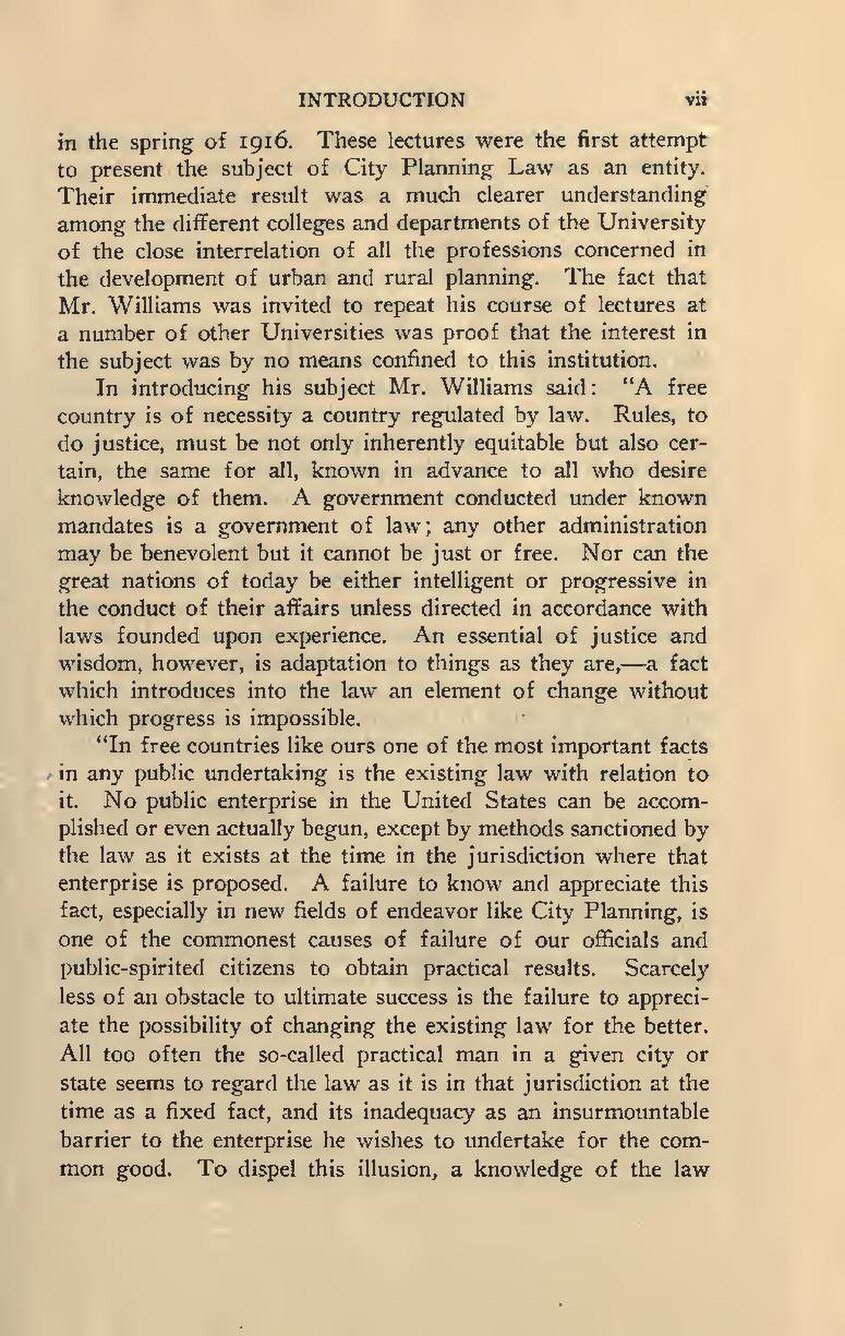in the spring of 1916. These lectures were the first attempt to present the subject of City Planning Law as an entity. Their immediate result was a much clearer understanding among the different colleges and departments of the University of the close interrelation of all the professions concerned in the development of urban and rural planning. The fact that Mr. Williams was invited to repeat his course of lectures at a number of other Universities was proof that the interest in the subject was by no means confined to this institution.
In introducing his subject Mr. Williams said: "A free country is of necessity a country regulated by law. Rules, to do justice, must be not only inherently equitable but also certain, the same for all, known in advance to all who desire knowledge of them. A government conducted under known mandates is a government of law; any other administration may be benevolent but it cannot be just or free. Nor can the great nations of today be either intelligent or progressive in the conduct of their affairs unless directed in accordance with laws founded upon experience. An essential of justice and wisdom, however, is adaption to things as they are,—a fact which introduces into the law an element of change without which progress is impossible.
"In free counties like ours one of the most important facts in any public undertaking is the existing law with relation to it. No public enterprise in the United States can be accomplished or even actually begun, except by methods sanctioned by the law as it exists at the time in the jurisdiction where that enterprise is proposed. A failure to know and appreciate this fact, especially in new fields of endeavor like City Planning, is one of the commonest causes of failure of our officials and public-spirited citizens to obtain practical results. Scarcely less of an obstacle to ultimate success is the failure to appreciate the possibility of changing the existing law for the better. All too often the so-called practical man in a given city or state seems to regard the law as it is in that jurisdiction at the time as a fixed fact, and its inadequacy is an insurmountable barrier to the enterprise he wishes to undertake for the common good. To dispel this illusion, a knowledge of the law
